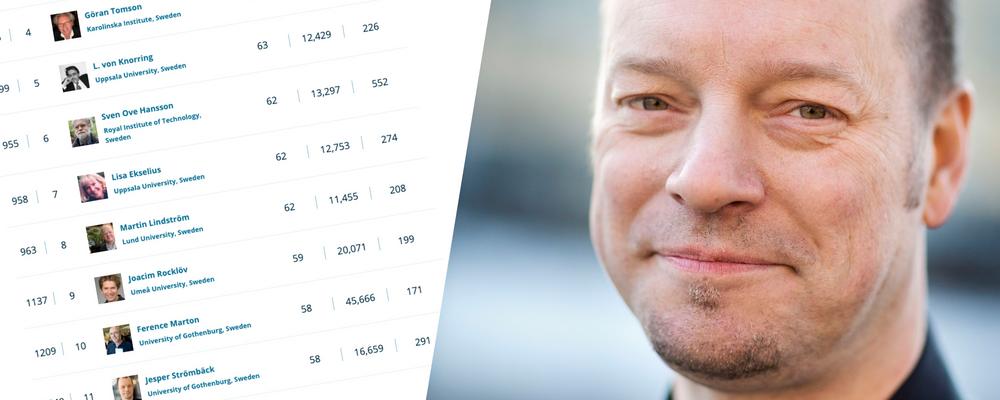You are one of the highest ranked Swedish researchers, number 11, in the ranking of the best scientists in the field of Social Sciences and Humanities. Read the full list from Research.com here:https://research.com/scientists-rankings/social-sciences-and-humanities/se
What is your reaction?
“I was very happy to learn about this, but also a bit surprised. I know that I am often cited, and the ranking largely builds on citation metrics, but I never think about myself in comparison to other scholars in other disciplines”.
What does it mean for you as a researcher and for your department?
“It is of course an important recognition, both for me and for the department, and I hope it will contribute positively when we seek to attract students and scholars, and when competing for research funding”.
Which part of your research is the one that generates the most interest?
“If I look at my record and what publications are most cited, it is my research on the mediatization of politics which deals with how politics is shaped by media and media logics. Also important is my research on how changing media environments influence politics, political attitudes, and behaviors, and ultimately how democracy works. My research on the relationship between media use on the one hand and political interest and knowledge on the other is also quite often cited. The picture is however broad: altogether I have about 60 publications that have been cited at least 100 times, and these deal with a broad range of topics”.
What do you see yourself as most current and urgent in your research right now?
“I would say the consequences of digitalization and changing media environments in terms of belief formation, political behaviors and, ultimately, democracy. These processes have contributed to a greater prevalence of false and misleading information than ever, which in combination with people’s preference for information that support their already held beliefs and opinions may lead to a decreasing consensus about what is true and not, increasing distrust in established news media and other knowledge authorities, an increasing prevalence of misperceptions, and epistemic polarization. These processes have also made it easier for radical groups to connect, organize and mobilize, which is undermining the mainstream and may lead to an increasing radicalization but also a normalization of radical and fringe views. One example is how anti-democratic, racist, and misogynic groups have gained strength and influence in a number of established democracies around the world”.
You have just completed your first year as assistant head of department and responsible for the research at JMG - how do you view that assignment? What are the biggest challenges and what goals do you have?
“ It is an exciting assignment, and I am happy that I can be part of strengthening the research environment at JMG. My goal is that JMG will be among the very leading departments of media and communication research in Europe and be part of the most important research networks within our discipline internationally. It costs money to grow though, and the most important challenge is hence the economy and how we can get better at attracting different types of funding”.
Read more about Jesper Strömbäck and his research here: https://www.gu.se/en/about/find-staff/jesperstromback
